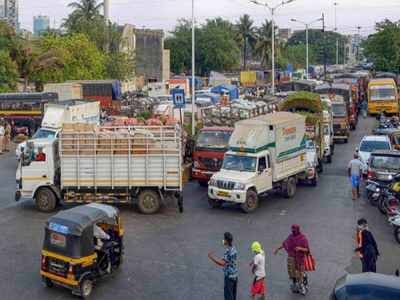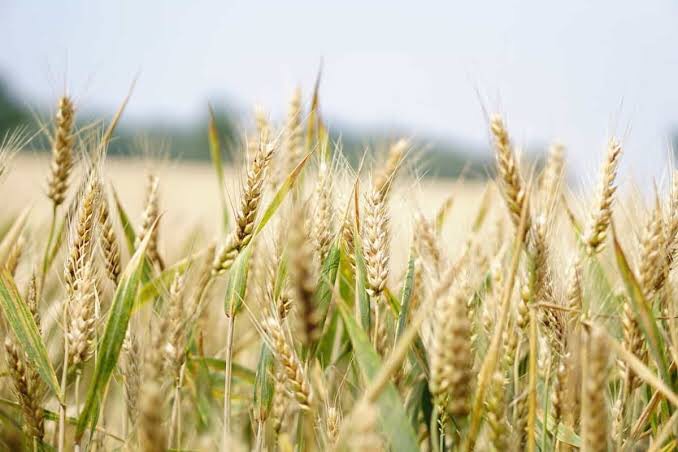
Self-reliant agriculture is critical for the goal of an Atmanirbhar Bharat. For this, agricultural export is significant as besides earning precious foreign exchange for the country, and the exports help farmers/producers/exporters to take advantage of the broader international market and increase their income. Exports have also resulted in increased production in the agriculture sector by increasing area coverage and productivity.
As per WTO’s Trade Statistics, the share of India’s agricultural exports and imports in the world agriculture trade in 2017 was 2.27% and 1.90%, respectively. Even during the stressful time of pandemic lockdown, India took care not to disturb the world food supply chain and continued to export. The exports of Agri commodities during March 2020 to June 2020 were Rs. 25552.7 Crore against the export of Rs. 20734.8 Crore during the same period in 2019, showing a sharp increase of 23.24%.
The agricultural exports as a percentage of India’s agricultural GDP have increased from 9.4 % in 2017-18 to 9.9 % in 2018-19. While the agricultural imports as a percentage of India’s agricultural GDP have declined from 5.7 % to 4.9 %, indicating exportable surplus and decreased dependence on the import of agricultural products in India.
Giant strides have been made in Agri export since independence. In 1950-51, India’s Agri export was about Rs. One hundred forty-nine crores which have risen to the level of Rs. 2.53 lakh crores in 2019-20. There has been a substantial increase in export of almost all the agricultural items in the last 15 years. Still, despite being one of the top producers of agricultural products, India does not figure among the top exporters of agricultural produce. For example, India holds the second rank in the world wheat production but ranks 34th in export. Similarly, despite being world No. 3 in the production of vegetables, the export ranking of India is the only 14th. Same is the case for fruits, where India is the second-largest producer in the world, but the export ranking is 23rd. To reach the ranks of a top exporting nation in Agriculture, commensurate with the production, there is a clear and definite need to take proactive interventions.

In view thereof, DAC&FW has prepared a comprehensive action plan/strategy towards the promotion of Agri trade. A detailed exploration of data and issues of pre-production, production, and post-harvest has been undertaken to evolve an end to end approach for developing a holistic strategy. An analysis of product groups and then specific commodities have been done concerning the present status of production & exports, strengths, challenges and after that interventions have been identified after consultations with stakeholders. The twofold approach addresses boosting Agri Export with emphasis on value addition and focussed action plan for Import Substitution. The interventions so identified have been converted into a timed action plan.
To mention a few, the Export strategy focuses on the export promotion of fast-evolving niche markets of Wellness food/ Health-conscious food/nutraceuticals; Development of “Brand India” in campaign mode to help penetration into new foreign markets and of new products which automatically translates into higher value realisation; Gulf countries have been identified as focus destination to increase the market share which is a substantial market for India though presently India caters to only 10-12% share of their total imports. A product-market matrix has been made containing a list of products of strength which could be expanded in new geographies and list of public markets which can be introduced with more new products.
It is also noted that Horticulture is a growing sub-sector. India holds 2nd position in the production of fruits and vegetables. It exports 8.23 Lakh MT (LMT) of fruits worth Rs 5,638 crore and 31.92 LMT of vegetables worth Rs 5,679 Crores annually. Grapes occupy the premier position in fresh fruit exports followed by Mango, Pomegranate, Banana, and Oranges. In the fresh vegetable export basket, Onions, Mixed Vegetables, Potatoes, Tomatoes, and Green Chilly are the essential items. However, world trade of fruits and vegetables is US$ 208 billion, and India’s share is minuscule. There is huge potential to increase export in fruits and vegetables. As such, a specific strategy for export promotion has also been evolved for Fresh Fruits & Vegetables with a particular emphasis on grapes, mango, pomegranate, onion, potato & Cucumber-Gherkin.
It is also emphasised that the existing Agri clusters are required to be strengthened and more product clusters to be developed to fulfil the gap of bulk quantity and quality of supplies. A time-bound action plan has also been prepared for import substitution with particular focus upon Edible Oils, Cashew, fruits and spices, thereby making India self –reliant.
At the behest of the Department of Agricultural Cooperation & Farmers’ Welfare, Ministry of Agriculture, product-specific Export Promotion Forums have been created to lead agri exports to new heights. Export promotion forums (EPFs) for eight agri & allied products viz. Grapes, Mango, Banana, Onion, Rice, Nutri-Cereals, Pomegranate and Floriculture, have been constituted under the aegis of Agricultural and Processed Food Products Export Development Authority (APEDA), Department of Commerce.
Each Export Promotion Forum shall be having exporters of the related commodity as its members along with official members representing concerned Ministries/Departments of the Central and State Governments. Chairman APEDA shall be the chairman of each of these forums. The forums will meet at least once in every two months, to discuss/ make recommendations on issues about the export of the respective commodity and invite experts etc. to the meeting for interaction, as required.
The Forums will continuously monitor and identify/anticipate developments in the external/internal situation about the production and export of their respective commodity and recommend /intervene for taking the necessary policy/ administrative measures. They will be inactive touch with the producers, exporters and other relevant stakeholders of respective commodities and hear their problems, and facilitate, support and provide solutions to them. They will regularly study the market for individual products on a global basis, and identifying opportunities and developments/implications for domestic entities, and disseminate the same expeditiously to domestic producers and exporters.
The recommendations of the forum will be placed in the product committee / Authority of APEDA. The Forum will keep in close contact with the concerned organisation of Ministry of Agriculture such as MIDH, Extension, NPPO etc., DGFT, Ministry of Civil Aviation, MoFPI etc. to further the interest of agricultural export.
(Source: PIB)














Comments